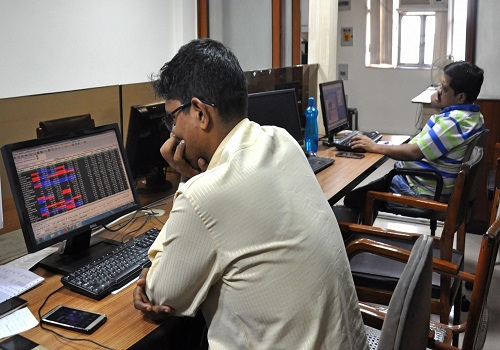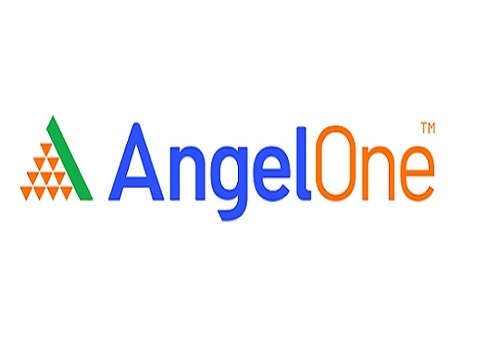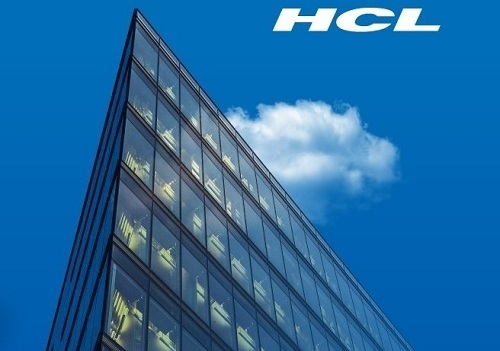Key indices wipe off gains to end flat on Monday
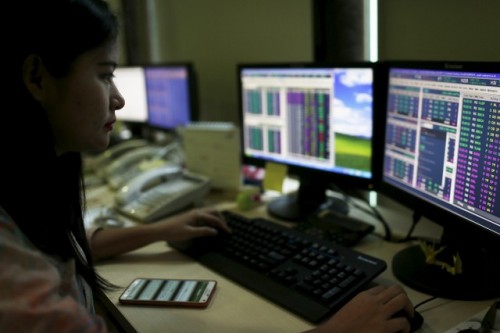
Follow us Now on Telegram ! Get daily 10 - 12 important updates on Business, Finance and Investment. Join our Telegram Channel
Indian equity benchmarks wiped off morning gains to end flat on Monday, as investors awaited data on consumer price inflation (CPI) for June and industrial output for May. The benchmarks staged a gap up opening taking cues from positive global cues. Traders took encouragement with report stated that despite the worse condition due to COVID-19 which impacted economic growth, the net direct tax collection has doubled to over Rs 2.49 lakh crore so far this fiscal, mainly driven by personal income tax and advance tax mop up. Sentiments remained positive as the Confederation of Indian Industry (CII) in its latest survey report stated that India’s economy is expected to see a swift recovery from the impact of the second wave of COVID-19 as lockdowns were largely designed to limit social gatherings and did not affect economic activities much. Some support also came as the Department of Economic Affairs (DEA) under the Ministry of Finance stated that the Indian economy is showing signs of revival from the second wave of the COVID-19 pandemic. It further added that healthy monsoon coverage, gradually rising Kharif sowing and unlocking of states are expected to ease inflation. However, benchmarks erased their gains and turned negative in late afternoon session amid reports that India's Covid caseload is on a downhill, but concerns over the Delta and Delta plus variants persist across the globe. Meanwhile, India has recorded 37,676 fresh cases taking the total caseload to 30,873,907, according to Worldometer.
On the global front, Asian markets settled mostly higher on Monday, as treasury yields stabilized after Friday's jump and China's central bank moved to boost liquidity, given concerns over slowing economic growth. European markets were trading lower after leaders of the G20 nations admitted that COVID-19 variants could threaten the economic recovery from the pandemic. Back home, on the sectoral front, Power stocks were in focus as power ministry data showed that India's power consumption grew nearly 18 per cent in first week of July to 30.33 billion units (BU) compared to a year ago and returned to pre-pandemic level mainly due to easing of lockdown curbs and delayed monsoon. Tea stocks too were in watch as the report stated that the tea industry is bracing for a decline in exports to the tune of 30-40 million kg this year as compared to 2020, due to the availability of low-cost varieties in the global market and amid trade restrictions in countries that have traditionally been strong importers.
Finally, the BSE Sensex fell 13.50 points or 0.03% to 52,372.69, while the CNX Nifty was up by 2.80 points or 0.02% to 15,692.60.
The BSE Sensex touched high and low of 52,700.51 and 52,208.96, respectively and there were 16 stocks advancing against 14 stocks declining on the index.
The broader indices ended in green; the BSE Mid cap index rose 0.40%, while Small cap index was up by 0.75%.
The top gaining sectoral indices on the BSE were Realty up by 3.56%, Basic Materials up by 0.84%, Consumer Discretionary up by 0.52%, Bankex up by 0.51% and Consumer Durables up by 0.27%, while Telecom down by 0.73%, TECK down by 0.55%, IT down by 0.48%, Power down by 0.44% and Oil & Gas down by 0.30% were the top losing indices on BSE.
The top gainers on the Sensex were Ultratech Cement up by 2.84%, ICICI Bank up by 1.20%, SBI up by 0.92%, Axis Bank up by 0.78% and Kotak Mahindra Bank up by 0.73%. On the flip side, Bharti Airtel down by 1.18%, Tata Steel down by 1.00%, HDFC Bank down by 0.97%, Infosys down by 0.95% and HDFC down by 0.74% were the top losers.
Meanwhile, Niti Aayog Vice Chairman Rajiv Kumar has exuded confidence that with India's story remaining ‘very strong’, the economy will register double-digit growth in the current fiscal (FY22) and the disinvestment climate also looks better. He also asserted that the country is prepared in a far better manner in case there is a COVID wave as states have also their own lessons from the previous two waves.
Asked when private investments will pick up, Kumar said in some sectors like steel, cement, and real estate, significant investment in capacity expansion is happening already. In the consumer durable sector, it might take longer because consumers might feel a little hesitant due to uncertainty on account of the pandemic. On concerns over a possible third COVID wave, he said the government is much better prepared in case such a situation comes up.
On whether the government will be able to achieve its ambitious disinvestment target this fiscal, Kumar said that despite the second COVID wave and its significant impact on the health side, markets have remained buoyant and they touched new heights. Pointing out that a good number of IPOs of startups are lined up, he said ‘the climate for disinvestment is looking better and I am very hopeful that the disinvestment target would be fully realized.’ He also said the government has budgeted Rs 1.75 lakh crore from stake sales in public sector companies and financial institutions. He added that achieving the target will be crucial for the government's finances which have been stressed due to the pandemic and resultant increase in spending activities.
The CNX Nifty traded in a range of 15,789.20 and 15,644.75 and there were 27 stocks advancing against 22 stocks declining, while 1 stock remain unchanged on the index.
The top gainers on Nifty were Ultratech Cement up by 2.47%, Grasim Industries up by 2.34%, Shree Cement up by 1.89%, JSW Steel up by 1.58% and SBI Life Insurance up by 1.56%. On the flip side, Adani Ports & SEZ down by 1.45%, BPCL down by 1.36%, Bharti Airtel down by 1.24%, Tata Steel down by 1.16% and Infosys down by 1.02% were the top losers.
European markets were trading lower; UK’s FTSE 100 decreased 53.02 points or 0.74% to 7,068.86, France’s CAC decreased 38.29 points or 0.59% to 6,491.13 and Germany’s DAX decreased 49.08 points or 0.31% to 15,638.85.
Asian markets settled mostly higher on Monday, despite lingering worries about the spread of the highly transmissible Delta plus variant of the coronavirus. Japanese shares ended higher, led by cyclical stocks on renewed economic optimism after data showed core machinery orders in Japan climbed a seasonally adjusted 7.8 percent month on month in May against expectations for an increase of 2.6 percent. Chinese shares gained after the country's central bank reduced the amount of money commercial lenders must set aside as reserves in an effort to sustain a recovery from the pandemic.
Above views are of the author and not of the website kindly read disclaimer


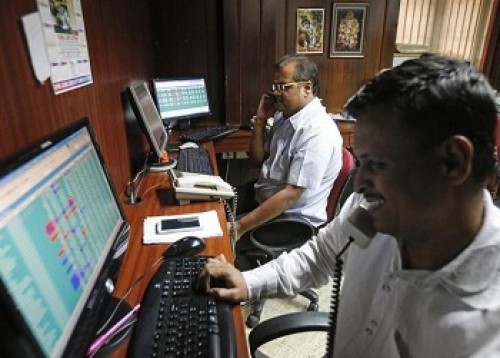



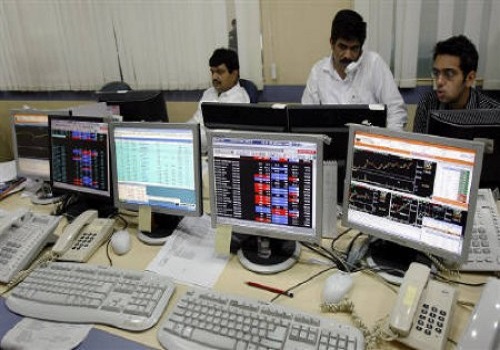


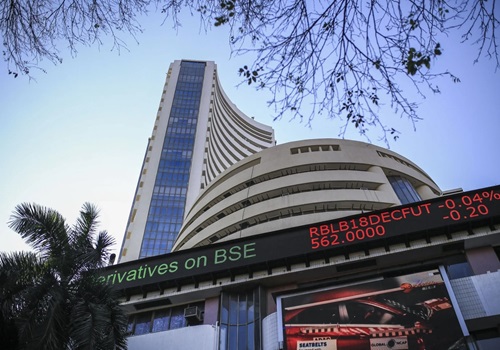
Tag News

Weekly Market Analysis : Markets strengthened recovery and gained nearly 2% in the passing w...



More News
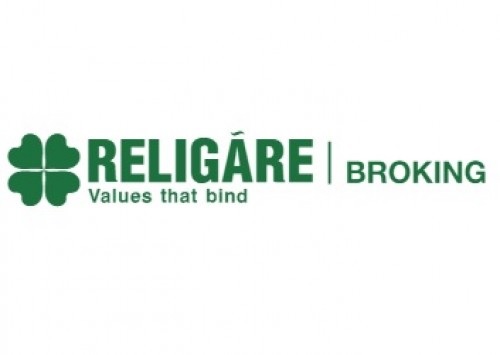
The Benchmark Witnessed a Gap up Start and Continued to Trade With Positive Bias Throughout ...

